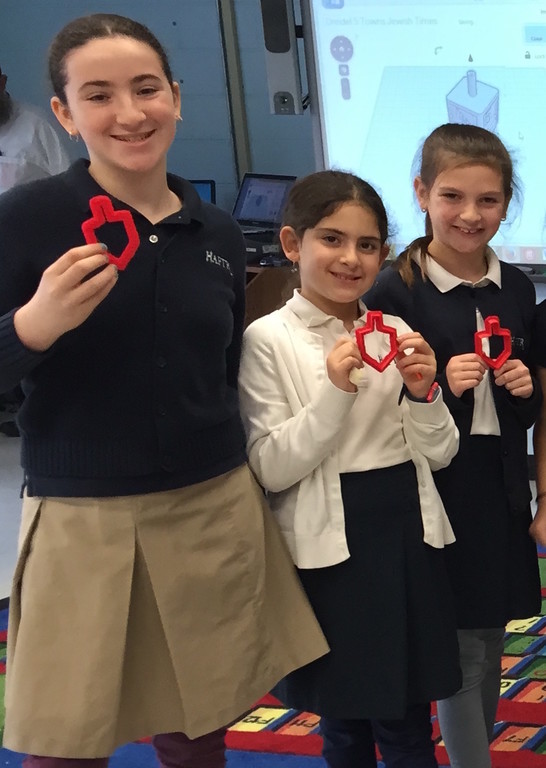HAFTR adopts 3-D printing for all grades
Nathan, is an 8-year-old who lives by the beach, loves scary roller coasters and can identify over 100 different sea creatures. With his 3-D printer, he has created a special pair of flip-flops that not only perfectly fit the contours of his feet, but leave his special octopus-print mark behind him on the sand as he explores.
Nathan does not attend the Hebrew Academy of the Five Towns and Rockaway, but most students at the school know who he is.
Nathan is a character in a book called “Leo the Maker Prince: Journeys in 3D Printing.” It shows many robots and 3-D printers that already exist, and how people are using them: Stephanie the jeweler who produces earrings in gold, silver and bronze; 12-year-old Alexa, who prints out toy musical instruments in colorful extruded plastic from a catalog of 3-D designs; George who replaced the door handles in his home with microgreens planters printed out of fused ceramic powder; Emilie the gourmet who creates chesspieces from chocolate or cheese paste for boards made out of crackers.
Elementary schoolers at HAFTR were busy designing and 3-D printing their own cookie cutters prior to Chanukah. Now they’ve moved on to making key chains using a program called Tinkercad.
With the proliferation of tech tools available today, schools have raced to acquire the latest and coolest equipment to augment their classrooms and gain bragging rights, each student having access to an iPad, or every classroom having a smartboard. It is easy to use new technology as a tool to pique student interests by making it fun.
Because the changing pace of how this equipment can be used warrants careful thought and planning to be truly effective, HAFTR created an Education Technology department to oversee its prudent introduction to every grade. The result? Students across the school are getting a practical understanding of today’s cutting-edge tech, and developing a mindset to create the tech of tomorrow.
The Ed Tech department is headed by Benjamin Gross, a doctoral student at Hofstra University who is helping craft a professional development program there based on the curriculum created at HAFTR.

 45.0°,
Fair
45.0°,
Fair 







